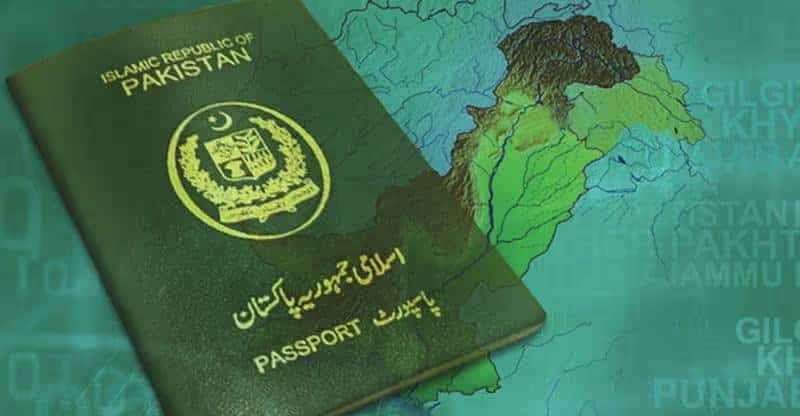.png)
.png)
Discover the top 10 immigration lawyers in the USA and learn how to become an immigration lawyer. Find the best immigration lawyer in Lahore and US immigration lawyer options in Pakistan.

Finding the right immigration lawyer changes everything. Your visa approval depends on expertise, strategy, and attention to detail. The top 10 immigration lawyers in the USA stand out through proven results.These attorneys don't just process paperwork. They craft winning strategies. They anticipate problems. They know exactly what USCIS officers want to see in applications.What makes an immigration lawyer truly elite? Specialization matters first. The best lawyers focus exclusively on immigration law. They don't dabble in personal injury or real estate on the side.Experience counts enormously. Top attorneys have handled thousands of cases across multiple visa categories. They've seen every possible complication and know how to solve problems quickly.Success rates tell the real story. Elite lawyers maintain approval rates above 90 percent even for difficult cases. They win because they only take cases they can genuinely help.
Fragomen Del Rey Bernsen & Loewy dominates the immigration law landscape. With over 60 offices worldwide and 6,000 employees, they handle more cases than anyone else. Their corporate immigration practice serves Fortune 500 companies moving executives globally.
Berry Appleman & Leiden pioneered technology in immigration law. Their proprietary case management system revolutionized how lawyers track applications. They process over 70,000 cases annually with remarkable efficiency.
Greenberg Traurig brings full service law firm advantages. Beyond immigration, they offer corporate, tax, and litigation support. This integrated approach helps business owners who need comprehensive legal guidance.
Laura Devine Immigration specializes in US and UK immigration exclusively. Their boutique structure means senior partners handle your case directly. They excel at O1 extraordinary ability and EB1 exceptional cases.
Klasko Immigration Law Partners focuses on business immigration and investor visas. They've handled over $10 billion in EB5 investments. Their Philadelphia office serves clients nationwide.
Curran Berger & Kludt maintains offices in Palo Alto and San Francisco. They specialize in tech startup immigration. Their clients include founders backed by top venture capital firms.
Siskind Susser PC operates from Memphis but serves clients everywhere. They've published extensively on immigration law. Their blog provides valuable free resources for understanding visa processes.
Mayer Brown offers global immigration capabilities through their international law firm structure. They handle complex multinational employee transfers and executive relocations.
Paul Hastings excels at employment based immigration for professionals and investors. Their attorneys frequently speak at American Immigration Lawyers Association conferences.
Maggio Kattar focuses exclusively on business immigration from their Washington DC office. They maintain strong relationships with USCIS policy makers and stay ahead of regulatory changes.
Beyond Border partners with these elite firms when clients need specialized representation. We match your specific needs with the perfect attorney for your situation.
Becoming an immigration attorney requires dedication and specific steps. The path isn't quick but the career rewards those who complete it. Understanding how to become an immigration lawyer in the USA helps aspiring attorneys plan effectively.
To become a US immigration attorney, start with a bachelor’s degree—majors like political science or international relations are helpful, but any field works if you maintain a strong GPA above 3.5. Prepare well for the LSAT, as your score determines law school options. Apply to schools with strong immigration programs such as Georgetown, UC Berkeley, or NYU, and complete your three-year Juris Doctor while taking immigration-focused courses and clinics. Gain hands-on experience through internships, pass your state bar exam, and consider specialized certifications like California’s Board Certification in Immigration and Nationality Law. Join the American Immigration Lawyers Association (AILA) for networking and growth. After law school, work at an established firm for a few years to build experience, and enhance your career by learning languages like Spanish, Mandarin, or Arabic. The full journey usually takes at least seven years.
Interested in immigration law career guidance? Beyond Border offers mentorship connections with experienced practitioners who can advise on your career path.

Pakistani nationals seeking US visas face unique challenges. Processing takes longer. Security clearances add uncertainty. A US immigration lawyer in Pakistan helps navigate these complexities.
Pakistani lawyers cannot represent clients before USCIS or US immigration courts, as only US-licensed attorneys hold that authority. However, local Pakistani lawyers play an important role by guiding clients on visa options, collecting documents, and preparing them for embassy interviews in Islamabad. The best results come from collaboration—Pakistani counsel managing local coordination while US attorneys handle filings with USCIS. Many US immigration firms work closely with Pakistan, understanding local documentation, embassy procedures, and potential security clearance delays. Communication mainly occurs through email and video calls, requiring flexibility due to time zone differences. Applicants should ensure all documents, like educational and police certificates, are properly authenticated. Security clearances can extend processing times up to a year, especially for Pakistani applicants. Common visa types include H1B, F1, L1, and family-based petitions, with costs ranging from $5,000 to $25,000 depending on complexity.
Lahore serves as Pakistan's legal and cultural hub. Many immigration lawyers practice there. Finding the best immigration lawyer in Lahore requires careful evaluation.Local attorneys assist primarily with document preparation and initial consultations. They cannot file US immigration petitions directly but they coordinate with American lawyers who handle actual filings.Top Lahore immigration lawyers maintain established relationships with US firms. These partnerships ensure smooth case transitions. Documents prepared in Lahore meet US requirements without revision.Look for lawyers with specific US immigration experience. Generic visa consultants lack depth. You need someone who understands USCIS requirements, not just Pakistani procedures.Check credentials carefully. Pakistan Bar Council membership proves legal qualifications. Ask about US immigration training or certifications from American organizations.Language capabilities matter. The best Lahore lawyers speak fluent English for communicating with US counsel. They also explain complex immigration concepts clearly in Urdu or Punjabi.Technology access improves service quality. Lawyers with video conferencing capabilities, secure document portals, and email responsiveness provide better client experiences.Fee structures in Lahore are lower than US rates. Local attorneys charge PKR 100,000 to 400,000 for comprehensive support. These fees supplement US attorney costs rather than replace them.Interview multiple lawyers before deciding. Ask about their US firm partnerships. Request examples of successful cases. Verify their understanding of your specific visa category.
Beyond Border connects Pakistani clients with Lahore based coordinators who work seamlessly with our US immigration attorneys for complete representation.
Many Pakistani attorneys aspire to practice in America. The question of whether a Pakistani lawyer practices in the USA has a complex answer depending on circumstances.
Foreign lawyers cannot automatically practice in the United States. Each state controls bar admission independently. Requirements vary but generally include educational credentials, examinations, and character evaluations.The typical path requires obtaining a US law degree. Most Pakistani lawyers pursue an LLM (Master of Laws) at an American law school. This one year program familiarizes foreign attorneys with US legal systems.However, an LLM alone doesn't guarantee bar admission. New York allows foreign lawyers with LLM degrees to sit for the bar exam. California requires additional study equivalent to a full JD program for most foreign graduates.Some states offer foreign legal consultant status. This limited license lets Pakistani lawyers advise clients on Pakistani law only. They cannot represent clients in US courts or before government agencies.The most reliable path involves earning a full JD degree from an American law school. This three year program qualifies you for bar admission in any state. Financial costs are substantial at $150,000 to $300,000 for tuition alone.Several Pakistani lawyers have successfully transitioned to US practice. They typically spend five to seven years completing education, passing bar exams, and gaining work authorization.Alternative options exist. Some Pakistani attorneys work for international law firms with US offices. Others serve as foreign legal consultants advising on Pakistani matters while US attorneys handle American law issues.
Beyond Border supports both clients and attorneys in the immigration space. Contact us to explore how we can help achieve your goals.
1.Who are the top immigration lawyers in the United States?
The top 10 immigration lawyers in the USA include firms like Fragomen Del Rey, Berry Appleman & Leiden, Greenberg Traurig, and Laura Devine Immigration, along with specialized practices like Klasko Immigration and Curran Berger handling thousands of successful cases annually.
2.What education is required to become an immigration lawyer?
Becoming an immigration lawyer requires earning a bachelor's degree, completing three years of law school for a JD, passing your state bar examination, and gaining specialized experience through immigration law clinics, internships, and AILA membership.
3.Can Pakistani lawyers represent clients in US immigration cases?
Pakistani lawyers cannot directly represent clients before USCIS or immigration courts but provide valuable local support with document gathering and interview preparation while partnering with US licensed attorneys who handle actual petition filings.